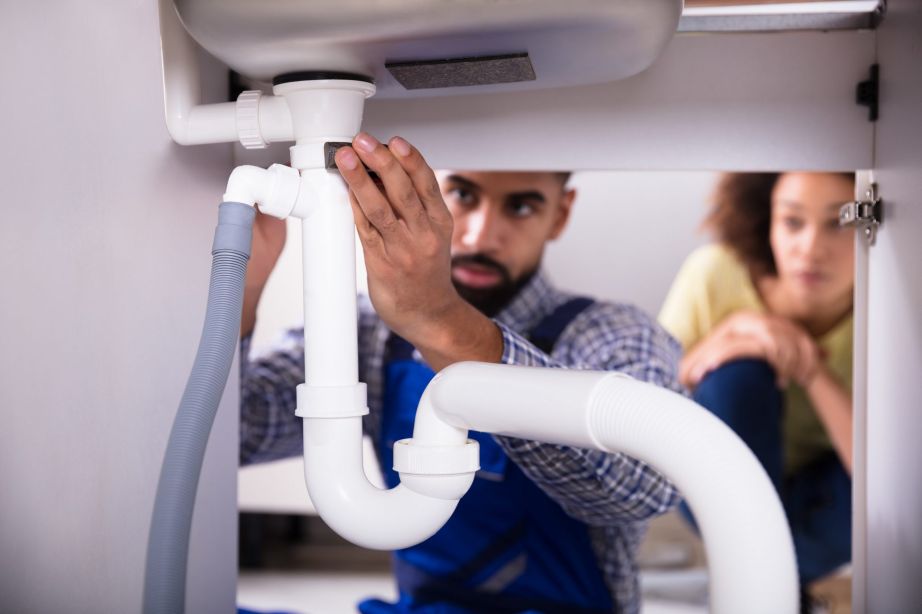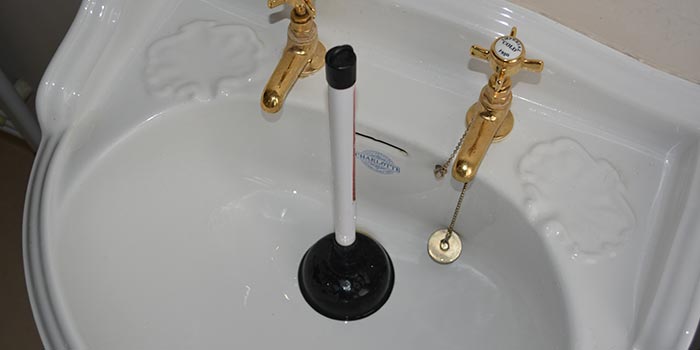Reliable Ways To Address Slow-Draining Sink Problems
Reliable Ways To Address Slow-Draining Sink Problems
Blog Article
What're your thoughts with regards to 4 Tips to Fix a Slow Draining Sink?

Intro
We've all been there: You're cleaning your teeth or cleaning your hands, and you notice the water merging in the sink. Rather than quickly swirling away, it lingers, transforming your once-refreshing early morning regimen right into a miniature swamp scene. A slow-draining sink isn't just irritating; it's usually an indicator of bigger plumbing issues hiding below the surface. The bright side is that many slow-draining sinks can be fixed with a little knowledge, a couple of basic devices, and some persistence. All set to tackle this job head-on? Allow's roll up our sleeves and dive right in.
Comprehending the Root Causes Of a Slow-Draining Sink
Prior to you start poking around in your pipes, it aids to recognize what may be triggering the downturn. Comprehending the root cause makes it simpler to choose the appropriate fix.
Tools and Materials You'll Need
The right devices make all the distinction. Thankfully, you won't require a totally stocked plumbing professional's van to finish the job.
Step-by-Step Overview to Fixing a Slow-Draining Sink
Now, let's get into the nitty-gritty. This step-by-step procedure will certainly lead you via straightforward strategies to restore your sink's drain.
Step 1: Eliminate and Tidy the Stopper
Usually, the stopper (that small plug you lower to block water) is the very first perpetrator. Remove it very carefully and clean off any hair or substance caught around its base. Wash it extensively prior to putting it back in place.
Action 2: Use a Bettor to Displace Debris
Got that plunger ready? Placement it over the drainpipe and offer it a couple of firm pumps. The concept is to create suction that can loosen up any clog. If you see bits of debris drifting up, you get on the ideal track.
Step 3: Try a Drainpipe Snake or Wire Hanger
If the bettor does not do the trick, it's time to highlight the drain serpent. Gently feed it right into the drainpipe and spin as you go. You may really feel some resistance-- that's likely the clog. Keep turning and pulling till you remove the blockage. If you don't have a drain snake, a corrected the alignment of cord hanger can operate in a pinch.
Step 4: Use a Do It Yourself Drain Cleaner
An all-natural cleaner made from cooking soda and vinegar can break down recurring gunk. Put half a cup of baking soda right into the drainpipe, adhered to by half a mug of vinegar. Let it fizz for around 15 minutes, then flush with warm water. This chemical reaction often does marvels for small obstructions.
Step 5: Rebuild and Check the Sink
Placed every little thing back together and run the faucet. Does the water now swirl down the tubes at a respectable rate? If yes, give on your own a pat on the back. If not, don't anguish-- there are still a couple of even more tricks up your sleeve.
Important Devices for DIY Services
A plunger is your go-to beginning factor. A small, sink-sized bettor produces suction that can displace minor blockages. For even more relentless blockages, a drain snake (occasionally called a plumbing's auger) functions marvels. A set of gloves, a flashlight, and possibly a set of safety safety glasses are additionally convenient.
Suggested Cleansing Solutions
Light dish soap and hot water can assist break down greasy accumulation. A combination of baking soda and vinegar is a time-tested natural remedy, and chemical cleansers offer a more green method. Keep chemical drainpipe cleaners as a last resort, as they can be extreme on your pipelines.
Usual Perpetrators Behind Slow Drainage
So, what's obstructing things up? Commonly, it's a mix of day-to-day debris-- assume hair, soap scum, tooth paste deposit, and remaining food particles. With time, these little bits accumulate and hold on to the pipe walls, slowly narrowing the passage and making it harder for water to pass through. In many cases, natural resource from tough water can additionally include in the gunk, producing the best tornado for stubborn clogs.
When is it Time to Take Action?
If you see the water draining slower than typical, it's an excellent idea to interfere sooner as opposed to later on. Waiting as well long could bring about complete clogs, undesirable odors, or even pipeline damages. If the water takes more than a couple of secs to clean out after shutting off the faucet, consider it a red flag and prepare to put on your do it yourself hat.
Safety First: Preventative Measures and Preparations
Prior to you launch into unclogging setting, consider safety and security. You're handling possibly filthy water and particles, so slip on a set of handwear covers. If you're making use of chemical cleaners, make sure the room is well-ventilated and comply with the directions on the label.
Safety Gear and Office Arrangement
Lay down some old towels or dustcloths around the sink area to catch splashes. Clear away any things that could enter your method, like soap dispensers or tooth brush owners. Make sure you have great illumination-- get a flashlight if needed.
Different Techniques for Stubborn Clogs
Not all clogs are developed equal. If your sink still rejects to work together, consider these alternative remedies.
Baking Soda and Vinegar Approach
We currently discussed this, yet it deserves keeping in mind again. This mild, eco-friendly approach is safer than chemical cleansers and commonly rather efficient.
Enzymatic Drainpipe Cleaners
Enzyme-based cleaners make use of natural microorganisms to digest organic matter. They're a superb choice if you're seeking to avoid rough chemicals. Simply bear in mind, they might take a bit longer to work their magic.
Chemical Drainpipe Cleaners: Advantages And Disadvantages
Chemical cleansers can blast through hard obstructions fast, however they're not without downsides. They can create warmth and fumes, damages pipelines if used excessively, and pose environmental risks. Utilize them moderately, and always follow the instructions thoroughly.
Preventive Measures to Maintain Your Sink Flowing
Prevention is the very best remedy. By embracing a couple of easy habits, you can maintain your sink from decreasing in the first place.
Normal Cleansing Routines
Clean down the sink basin and fixture area routinely. Eliminate hair or food fragments prior to they have an opportunity to wash down the drainpipe.
Staying Clear Of Hazardous Compounds Down The Tubes
Think twice before disposing coffee grounds, grease, or fibrous vegetable scraps down the sink. These culprits hold on to pipe wall surfaces, creating blockages in time.
Routine Upkeep Checks
Arrange a quick month-to-month examination. Run warm water through the sink for a few mins, paying attention to the flow. If it appears slow, act quick before it comes to be a full-on obstruction.
When to Call a Specialist Plumbing Professional
Occasionally, despite just how hard you attempt, that obstruct simply won't move. That's when it's time to bring in the pros.
Indications That Indicate an Extra Serious Problem
If your sink drains pipes gradually despite several efforts, or if you notice water backing up in various other fixtures (like your shower or bathroom), you might have a more major pipes problem lurking much deeper in the system.
Stabilizing Do It Yourself Efforts with Specialist Aid
While do it yourself can conserve you cash and supply a feeling of success, there's no embarassment in calling a specialist. A specialist plumber can assess your whole plumbing setup, making sure there's no underlying damages or long-term issue that could cost you more down the road.
Contrasting Costs and Long-Term Solutions
Before making a decision, consider the big picture. An affordable, quick fix may fix the problem momentarily, but buying a more irreversible service can save you cash and tension in the future.
Weighing the Costs of Do It Yourself vs. Professional Repairs
Do it yourself solutions commonly set you back bit greater than the price of a bettor or a bottle of baking soda. Expert solutions, on the other hand, featured a price however might stop repetitive concerns and expensive repair services later on.
Buying Top Quality Fixtures and Upgrades
If your sink's design contributes to frequent clogs, it might be worth updating to higher-quality components or changing the plumbing design. Consider this an investment in your home's performance and comfort.
Conclusion
A slow-draining sink can feel like a small irritability, however it's typically a sign that your pipes needs a little TLC. By understanding the origin, utilizing the right devices and methods, and devoting to easy preventive measures, you can maintain your sink flowing easily. And when all else fails, never wait to contact a professional-- your home's plumbing deserves the financial investment in treatment and maintenance.
Three Common Ways to Fix a Slow Drain
Baking Soda Method
Boil a full pot of water. Measure out cup of baking soda and pour it down the drain. Then take cup of the magical cleansing substance known as white vinegar and drop that down there too. Allow the mixture to fizz in the drain for five minutes as the vinegar and baking soda combine. Now dump in that whole pot of boiling water. This combination of cleaning substances should clear out anything that is causing your sink to drain slowly. If it doesn t...
Zip-It
If the baking soda method doesn t clear out your drain, it may be because a significant amount of hair and/or other debris has collected there and you need to remove it. Purchase a Zip-It tool at any home improvement or hardware store and insert it into your drain. It will catch any collected hair or debris that s blocking the flow of water. Pull it out. If it s got a big clump of hair, etc. on the end, you ve probably got your culprit.
Drain Cleaner
If these methods don t work, there is the standard drain cleaner that you can also buy in a hardware store or even your local grocery store. It s better if you can use a household solution, but these drain cleaners often work in a pinch. They re very simple to use. You generally just dump them in your drain and wait. If even this method is not effective, it may be time to call the plumber.
https://www.mrrooter.com/oneida/about-us/blog/2017/july/three-common-ways-to-fix-a-slow-drain/

We had been made aware of that editorial about 7 Ways To Fix A Slow-Draining Sink Before You Call A Plumber from a friend on a different website. Loved our review? Please quickly share it. Help another person check it out. I love your readership.
Call Today Report this page